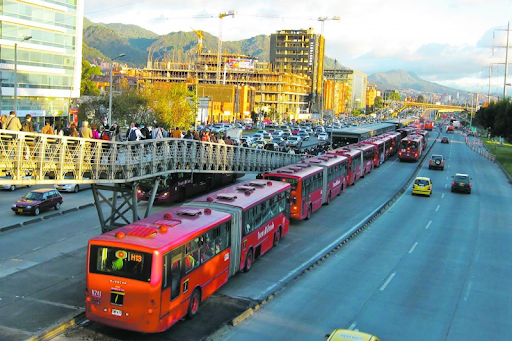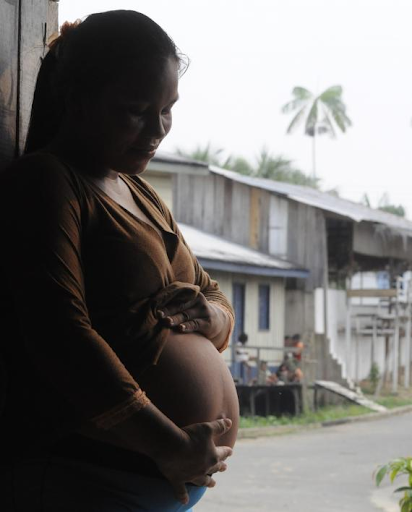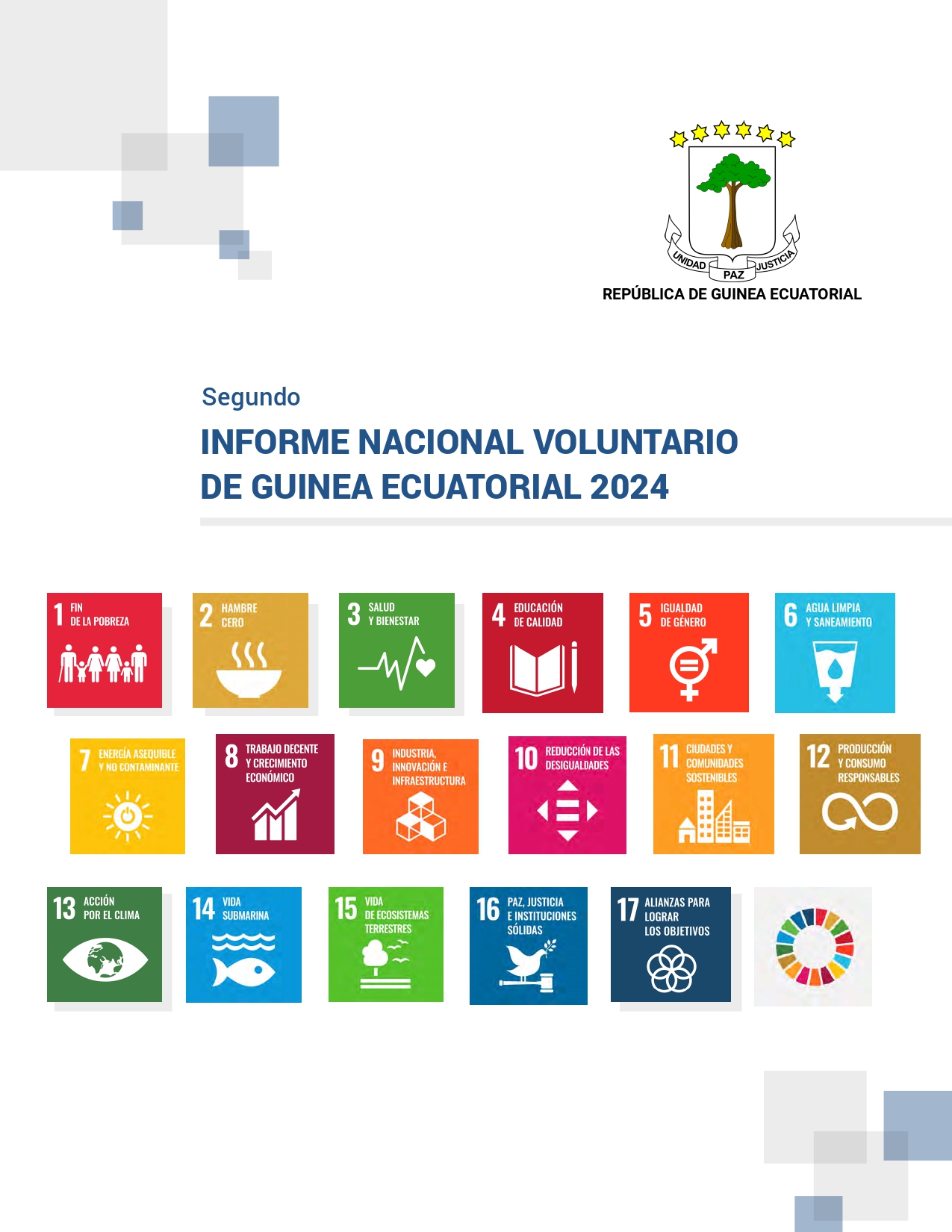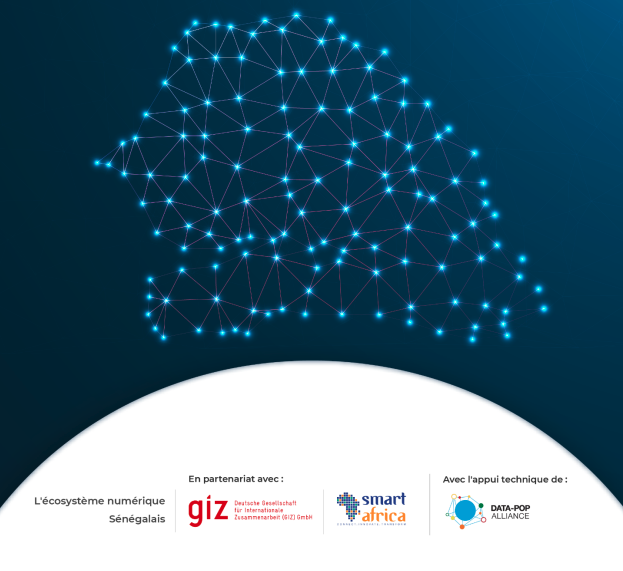DISCUSSION PIECE
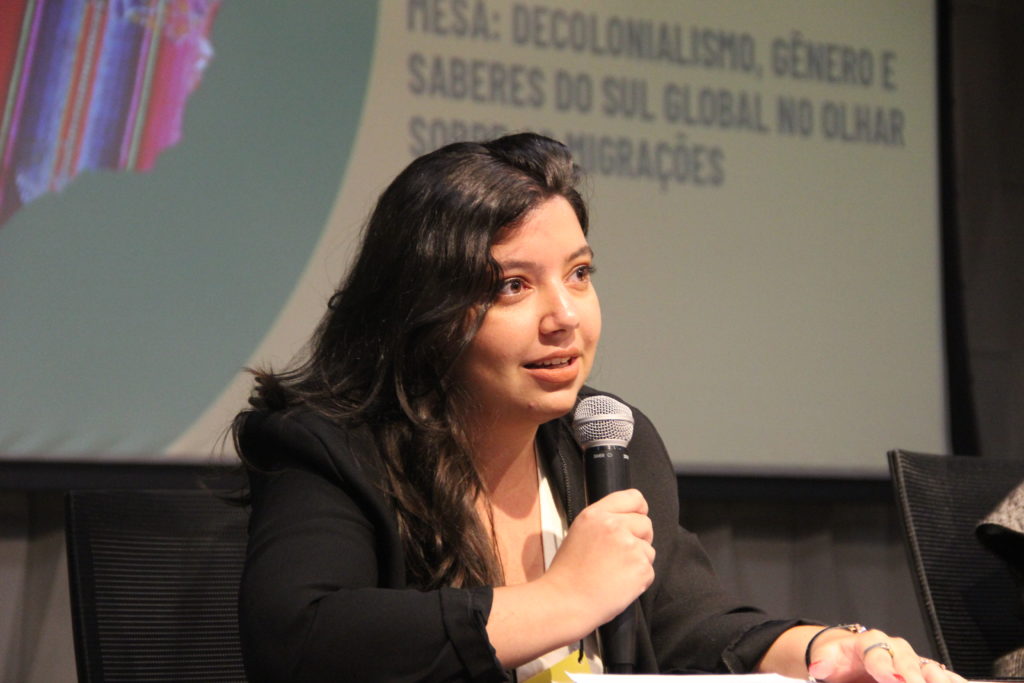
Author’s Note: For Portuguese speakers, here is the link to watch the original presentation, as well two additional roundtables from the event.
On October 8, 2022, the “2nd Psychology and Migration Seminar: Connecting Knowledges” took place in Belo Horizonte, Brazil. This event was organized by the Regional Council of Psychology of Minas Gerais, through the Commission Psychology and Migration, of which I am a member. Discussions involved human mobility in the context of Latin America. I had the opportunity to participate in a debate on decoloniality, gender and knowledge from the Global South, a discussion that through this text, I invite colleagues from other parts of the world to engage with.
I will begin this piece with a narration of three scenes that I selected, three cartographic diaries that I wrote during the research that marked my entry into the field of migration. These scenes took place in Bogotá, Colombia in 2019, when I was still a Psychology undergraduate student on an academic exchange program with a desire to work with refugee women.
Scene 1: The Millennium Barbarism
What I have heard most, since I arrived here in Bogotá, were comments and jokes about the bus transport system called Transmilenio. The comments always refer to the crowding and the thefts that take place in this system that transports thousands and thousands daily through the main roads of the city. But so far, that is not what has impressed me the most. It is my third week going to university, and not a day goes by that I do not hear people struggling to survive, asking for help on the bus. In the wagons echoes the voices of Colombian and Venezuelan street vendors.
Most are men, but there are also many women with babies and children. They usually carry straw baskets with sweets and peanuts for sale. Some also sing gospel songs, Spanish classics or even original rap songs. Then there are those who carry a folder of documents and tell their story hoping someone will listen. And they go from wagon to wagon, depending on how the donations go. On Monday, it was a man who apologized for being a human being like us, the passengers, and that being so, he needed to eat. Yesterday, the stress made me put on headphones and ignore the stories, like so many others around me. Today, it was a Venezuelan man who slept on the street with his wife and small child. He has a degree in Business Administration, but he can’t find a job and his son needs expensive medicine. The day before, the child had complained about the cold at dawn and that is why, he said, he was humiliating himself in front of us, the passengers. As he shouted that, there I was, hurrying to class, reading about suicide in Durkheim, about the importance of community and human cooperation, protecting my backpack from thieves. The hypocrisy and rocking of the bus make my stomach turn.
Scene 2: Day 1
To learn a little more about the day-to-day of the foundation for migrants where I would develop my research, I started following the psychologist’s routine. I was introduced to her a quick chat, and she agreed to have me accompany her, but said I must be willing to keep up with her pace. I nodded, not quite understanding what she meant by that, but I very soon understood. She did not stop in one place for more than five minutes. There were three cases handled that morning.
After attending to a man in his sixties and his grandson, she is interrupted by someone who was staying in the building. The second case was a trans woman who has had difficulty finding shelter because the rooms are divided between women and men, and the shelters would not put her in the women’s room, the psychologist told me later in a low voice. That morning’s saga was to find a place that would accept her. A long time later, they found a place in a distant neighborhood. Protocol stated again plus an explanation of the shelter’s rules: wake up early in the morning, spend the whole day on the street looking for a job, can’t stay there, and must return in the late afternoon. An envelope, a few pesos, directions and there she goes.
Third case, a young woman in her early twenties, pregnant with her fourth child. Again, the giant folder of documents in her hands. Again, the protocol that already sounded like a sentence to me at that point. Question: “how many months?”, “three months”, she says. The psychologist stares at the woman’s belly for a moment and asks for documents to prove her pregnancy. She opens the folder and takes out an X-ray. She looks at her belly again and says, “you know, there are a lot of people trying to deceive us”, the woman lifts her blouse, showing the protrusion of her stomach. Signed forms, she would stay in the building, receive a bag of clothes and a bag of food. The psychologist leaves with some papers, and we are alone in the room for a few moments. Silently, she looks at me, I smile and ask how long she has been in Bogotá. She had arrived a few weeks ago. “Do you work here?” “No, I’m a student from Brazil, I’m on an exchange and following the work here.” “Nice.” Silence again. I think of the different paths we took to get to Bogotá, she as a refugee for survival, I for curiosity. “How did you find out about the institution?” “A friend had come here and told me.” “How is the pregnancy going?” “So far so good, but I’m worried about how it will be later, I need to raise the others too, they’re outside with my mother.” “And their father?” “Oh, somewhere in the world.” Interruption, the psychologist returns. More signatures, agreements, “where is your bag to put clothes and food?” “Does this one not fit?” “No, it has to be bigger, we don’t provide it.” She goes back in line to try to get one, and returns with a black plastic bag. We deliver the donations and off she goes up the stairs.
Scene 3: The Last Interview
I spent the first few months of this journey anxious, thinking about how I would get in touch with the Venezuelan women. It took months of talking to psychologists, sociologists, and social workers before finding the attention center. I was able to conduct interviews with women assisted by the institution, and this first week of December was synonymous with relief and pride for having managed to put into practice what I had planned. Sitting in my room, I started thinking about the trips for this month, before returning to Brazil.
Then, I hear a Mexican friend talking in the living room with the lady who cleaned the house weekly. I can’t hear them well, but they say something about cultural differences, food and homesickness, until I hear the word Venezuela. In my last days in that house, I finally realized that the woman who had been cleaning my bedroom door since I arrived, who was giving me a shy “good morning” smile, who was sweeping the stairs while humming a song that came out of her headphones, who was looking out for my well-being all that time, was Venezuelan. While I was discussing strategies with academics, she was right there. Me, who criticizes so much the blindness of routine, the rush of the encounters, never got interested, never talked to, never saw her.
I waited for her to be alone, and what was likely a strange way, I asked her if she was Venezuelan. She said yes, but that she has been living in Bogotá for a few years. I explained that in the next few days I would be leaving, but before, if she was willing, I would like her to share her story to join the research. Her smile was not shy this time, and we agreed that we would do the interview next week. She showed up on one of her days off, her son was with her. While he was shopping, she sat with me in the living room and chatted with me for an hour. At the end we hugged, I thanked her for the semester and for being willing to tell her story. I looked into her eyes. It is easy to forget that the blind gear keeps turning all the time. I am afraid of forgetting the gear.
Walking With and to the "Other"
They say it is never possible to revisit a place with the same feet. To remember these scenes three years later is to be able to walk again in this territory that represented a very important curve in my path. I have, little by little, grounded myself in decolonial studies, a perspective that invites us to an epistemological insurgency and raises doubts about the borders we have established.
If we start from the principle that there is a difference between colonialism and coloniality, that is, that the end of the colonial order did not represent the end of its structures of domination, that formal political liberation was not the end of the dehumanization of the others, we begin to come across this intricate legacy in the structures that make up our systems, in the epistemicides perpetuated by our Westernized universities, and in our own world views. It is interesting to notice that the parallel with the colonizer who identified the Indigenous populations as barbarians or good savages, continues to be reproduced in the image of the immigrant, sometimes as an invader, enemy, or terrorist, and sometimes as a victim, defenseless, or marginalized. Both call for an action by someone who acts upon the other, whether through combat and extermination, or through paternalism and charity.
In this logic, a part of society insists on portraying the group of migrants as a homogeneous group, without a face and without a story. The trajectories reported are geographic ones, there is no mention of life routes. The order proclaimed is the expulsion and reinforcement of the border that separates this part from contact with those who are different. While another part insists on spreading the images of sad faces, malnourished bodies and despair. The trajectories reported are the cut-out dramas of this whole life that disappears to make way for a story of suffering. And the order proclaimed is sub-alternity, which also ends up separating this part from the contact with difference. What I want to emphasize is that the production of the strange and the foreign bodies (o estranho e o estrangeiro), the emotions and stereotypes in relation to these bodies, is both historical and political. Additionally, such depictions have the strategy to eliminate the power of agency of these groups.
At very close time intervals in this year, 2022, Ukraine and Russia completed 100 days of war, the Nakba (the Palestinian catastrophe) completed 74 years of continuous tragedy, and the world reached the mark of 100 million people in forced displacement. There have not been this many concurrent conflicts since the end of WWII. As people’s compassion and solidarity were celebrated with open arms, we knew that the remarkable generosity towards the Ukrainian people is not only due to compassion, but also is tinged with racism, as they haven’t been “othered” like so many different refugee groups.
Syria, Yemen, Afghanistan, Sahel, Ethiopia, Palestinian territories, Central America and the Caribbean, these will not be seen on television, and, at best, they will be a complicated chapter in a future history book. As they don’t have white skin and western values, there will be no mourning and no resources. For them, just terror about the relation between life and death, between who is able to decide who can live and who must die. While something is born in celebration, something dies in silence. Or maybe die screaming, but we’ll be too busy looking at the brightest corner of the room.
Coming into contact with those different from ourselves is only possible to the extent that there is openness to encounter, recognition of our positionality and suspension of our knowledge of the other. To decolonize our gaze and our practice is to enable the experience of multiple and singular existences, it is to allow the creation of narratives different from the perspectives I mentioned, a look that sometimes occupies the faces of “good citizens” on the street, of professionals from institutions, and of my own image in the mirror.
I believe it is pertinent to think about these perspectives from our position as researchers. The forces that reduce the existence of the “other” are not only found in the media, border patrols, and political speech. They also capture our gaze in the encounter with what we call the field of practice, the object of study. In many of our research activities, we adopt the role of the translator and the editor. Their experiences become data, emotions are not allowed, contradictions are cleared, and a false neutrality is published.
I remember the conversations I had in orientation sessions when, on one hand, we warned about the romanticization of stories and, on the other, told how important it was to share positive and resistance stories, not only the tragic ones. A delicate balance that is built in life experience and openness, a movement that goes against the tides of the ways of life we have been cultivating.
It goes against the tides of this intense movement that we live in search for the universal, for the healing response, for closure, for the understanding and domination of everything. I am suspicious of those who come out of encounters with the world with many answers. I actually hope that after reading this text, you will leave with questions.
How do we act in face of the historical production of the stranger, of the foreigner? How can we think of strategies to change the questions and vocabulary that we build on the idea that we have the power to study and understand this “other”? I do not think we ask ourselves enough.
Still, the porosity of the ungovernability of migration and the perspective of autonomy that recognizes the subjectivities of people in displacement are some possible paths for another way forward. It is an ethical and political duty to identify these dimensions, aligned with an intersectional point of view that recognizes the oppressions of this Colonial World System, and the fundamental human rights.
Border areas in Brazil are not just the edges of this continental-sized country. It involves considerations about the myth of the welcoming Brazilian, the difficulty of understanding ourselves as a Latin American people, the rise of the extreme right-wing government, the structural racism, the genocide of Black and Indigenous peoples, the high rates of violence against women and LGBTQIA+ population, the more than 33 million people starving. And it does not stop there.
In fact, the multiple meanings of borders and territories are some of the most pertinent considerations in my studies on migratory flows, including the frontiers of knowledge that brought me closer to the knowledge we have produced in the South. Awareness of the limit is also the awareness of the possibility of questioning it, going beyond it, reinventing it in existence and collectively. Border areas are also areas of resistance and noise about the history that we normalize. And how powerful it is to recognize the place of the frontier: the fractured locus of María Lugones, the new mestiza of Gloria Anzaldúa, the outsider within of Patricia Hill Collins, the entre of Spivak.
Reframing Migration
Migrating is a right; migrating is a political gesture. Thinking in retrospect, I got pursued migratory studies precisely because of what the impediments to the right to freedom of movement say about our social construction. Their flows and struggles denounce the intersectional violence, the contradictions of capitalism, the abyssal line between north and south, the impacts of environmental destruction, the repetition of history, the prioritization of economic goals over humans, the failures of globalization. Mechanisms that surround us, which at the same time are so complex in their articulations and layers, and so simple in their basic fundamental rule that uses human life for capital purposes.
But the closer I got to this field, the more I realized that the movements and struggles of migrants also point to the desire in us. The desire for a life, for freedom, for experience, for hope, for belonging, and to recognizing oneself and be recognized. The failure of their project is a failure for all of us. It was in the encounter with the migrant women that I recognized myself as a Latin American woman; that I realized that languages, even when they are not perfectly understood, are capable of sharing memories; that in the construction of networks is the community force capable of echoing these voices. Those women’s voices still resonate within me.
I still vividly remember the huge sign on one of the hills of Ciudad Bolívar, a peripheral community of Bogotá, that said: VIDA DIGNA. The importance of listening to silenced narratives lies in the commitment to dismantling discursive regimes that reduce the dynamics of lives lived in homogeneous labels, ignore the construction of the meanings of experience, and promote historical fatalism. More than resilient, the migrant, Indigenous, Afro, rural, female, their oppressed cries are resistance. As long as there is a hand to feel, a voice to speak, a border to cross, resistance will exist.
About the Author: Núbia Rodrigues is a Research and Content Intern with Data-Pop Alliance’s Data Feminism Program. She is from Brazil.

